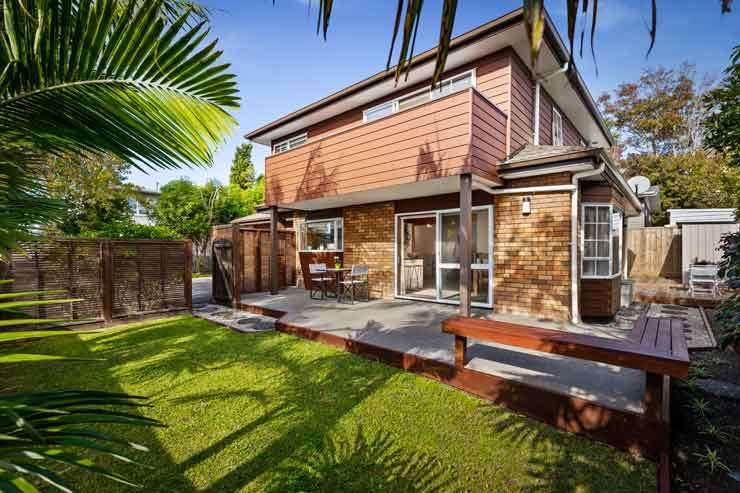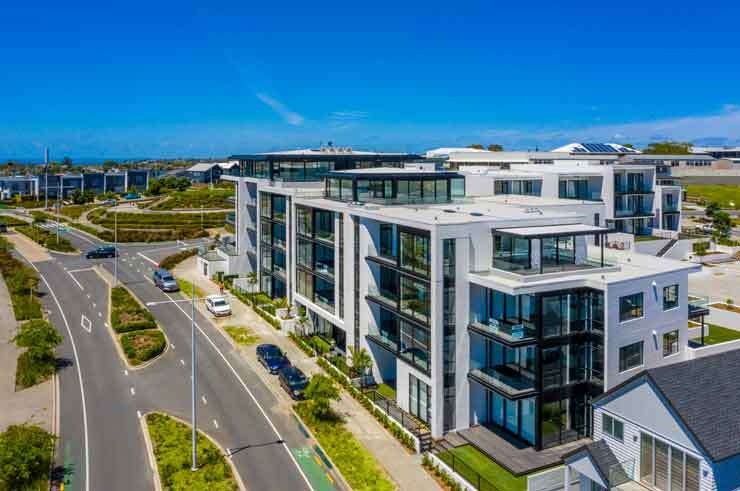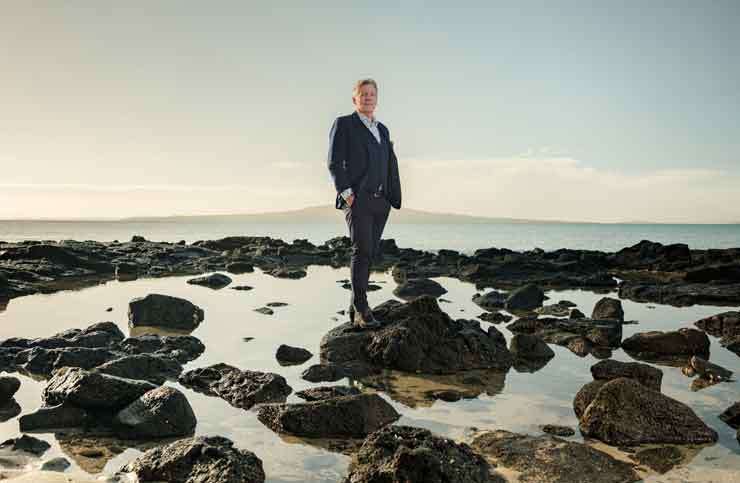It’s more expensive to buy a house on Auckland’s North Shore than anywhere else in the country.
OneRoof’s new house price figures show the median value for a property on the sought-after location sits at around $1.308 million compared to $1.055m for the same time last year.
READ MORE: Find out if your suburb is rising or falling
That’s a $253,000 increase over 12 months. The 24 per cent rise is higher than Queenstown-Lakes, which is the usual contender for New Zealand’s most expensive housing market.
Start your property search
Queenstown-Lakes didn’t totally slump as some predicted post-Covid with the international tourist market dead but median prices rose only by 9 per cent taking the median value to $1.108m, up $88,000 over the year.
Jonathan de Jong, from Bayleys on the North Shore, who runs the Long Bay, Mairangi Bay and Coatesville team, says the Shore has had a tremendous run on the back of an extraordinary number of new buyers wanting to come in to the area.
“We are still selling properties today at prices that are surprising even us and prices we would have thought would go for $1.3m are going for $1.5m to $1.6m, so the reality is the market is very, very strong.”
One which surprised price-wise recently is a three-bedroom house on Beach Road, in Torbay, which sold under the hammer for $1.578m after the auction was brought forward because of a $1.45m pre-auction offer.
That pre-auction offer was already a “brilliant” one for an un-renovated house on the back of a cross-section but there were still five bidders in the room and an extraordinary price was gained.
However, getting stock is becoming harder because a lot of people who wanted to move have moved and people in the marketplace are scared if they sell they won’t be able to buy.
There are still pockets where you can find good prices but all the major areas have moved up in price, de Jong says.
“Anything close to great schools, close to the beach, has certainly gone up in price but if you go into some of the inner suburbs and some of the smaller suburbs, you will still be able to find reasonably priced property.”
A big turnaround over the last year has been huge demand for apartments.

A do-up home on Beach Road, in Torbay, sold for $1.578m under the hammer. Photo / Supplied
“A number of apartment buildings were sitting quite quiet for quite some time and we’re now seeing extraordinary uptake.
“Beach and Cavalli at Long Bay is almost sold out now where 12 months ago we were struggling. We’ve just about to release a building in Mairangi Bay with 18 apartments – we haven’t even released it yet and we’ve got holds on eight already, there’s just whispers gone into the marketplace.”
Pricey sections, too, are getting a lot of interest, such as 27 Bayleys is selling on behalf of Todd Group, in Okura, which are going for $2.5m to $5.5m.
De Jong says the North Shore appeals because it offers a great lifestyle with beaches and it’s not far from the city.
Those who want to sell should look at terms to give them time to buy something else, though.
“We don’t know how long this wave is going to run and we are certainly seeing buyers more cautious than they were six months ago.”
“At the moment we’re in a really good equal market where if a vendor comes on to the market and is properly priced he or she will sell their property.
“If they are over market the buyers are wise enough to not pay ridiculously stupid prices whereas six months ago I would have said you could just about get anything.”

The Beach and Cavalli apartment development at Long Bay has almost sold out. Photo / Supplied
Martin Cooper, managing director of Harcourts, Cooper & Co, says the North Shore has traditionally had the highest per household incomes, which is a symptom of the high employment, and firms like Vodafone have moved their head offices over to the Shore.
“A lot of high volume employers on the North Shore is creating competition for school zones. People earning high incomes want to live in the right school zones to educate and grow their families.”
The high median value for property is indicative of the North Shore being a great place to live, he says.
“Like any area that’s a great place to live you’ve got to pay the price to get in.”
Suburbs such as Forest Hill are in the double Westlake zone, close to employment and to the CBD and these suburbs get an enormous amount of interest and appeal to a diverse range of people.
The Asian population is drawn to parts of the North Shore with Albany projected to have more than 50 per cent of the population Asian by 2040.
Cooper says the North Shore is a very welcoming to new immigrants and the Shore itself has only been established in the last 50 years since the Harbour Bridge was build.

Harcourts Cooper & Co managing director Martin Cooper: “People earning high incomes want to live in the right school zones.” Photo / Ted Baghurst
“The other thing about the Shore is it’s surrounded by the coastline and it’s quite a hilly, undulating area so many of the properties will enjoy views over the Hauraki Gulf and the Rangitoto Channel.
“Each community has its own identity. We get people on the North Shore who live their entire life in Devonport.
“They work and live and entertain in that area. Same with Mairangi Bay or Milford or Takapuna. It’s like a whole lot of little villages all joined together.”
More affordable parts of the North Shore, such as Beach Haven and Birkdale, are going through regeneration.
The Unitary Plan has meant one house can be removed and four built which is providing affordable housing and there are still plenty of young couples who still buy an older home to do up.




